Rome (Italy). On the eve of the start of the XVI Ordinary General Assembly of the Synod of Bishops, which will be held in the Vatican from 4 to 29 October 2023, the Mother Emeritus of the Institute of the Daughters of Mary Help of Christians, Sister Yvonne Reungoat, called as a participant among the Experts and Facilitators, interviewed, expresses the hopes and expectations, the objectives and challenges of this experience of the Church that she is about to live.
This Synod presents several innovations, including the methodology of synodality, implemented throughout all phases. What kind of experience lies ahead?
It is an experience that Pope Francis wanted not as an event, but as a path to begin from the base, from the concrete life of all the faithful, of all those baptized in families, in parishes, in dioceses, in nations. Then at a continental level, to try to introduce all the people of God into living internal and external attitudes that facilitate walking together. Attitudes of listening deeply to the Spirit, to the reality of people and of what the Church is experiencing in different contexts, but also of those who are not in the Church. Then to let ourselves be guided into this process of sharing that will not end, not with this Assembly, not with that of next year or even when the Synod has ended. The synodal Church is called to continue this journey because it is in its nature to be synodal.
What are the hopes and expectations of the laity regarding this Synod?
I was able to listen to lay people who participated in the synod paths in the parishes and who expressed their enthusiasm because they finally had the opportunity to be heard and to have a voice. But there is one concern. When this process is finished, will everything go back to how it was before or will something really be changed? It is a profound concern that ultimately runs through the entire preparation for the Synod.
How does this Assembly fit into the global journey and what are the objectives?
The Synodal Assembly which will meet from 1 October, in reality from 30 September until the end of the month, is not to be disconnected from the entire journey undertaken since the opening in 2021, experienced at all levels. The preparation had its culmination in the 7 continental assemblies in which we tried to collect the important points and questions of the Church in each continent to bring them to the discernment of the Assembly. The first discernment will take place on the basis of the Instrumentum laboris, created on the results of the continental Synods. The discernment that will begin in this first Assembly will form the basis for the following session in October 2024.
The objective of the Assembly is to relaunch the process, to embody it in the ordinary life of the Church, identifying on which guidelines the Spirit invites us to walk together with greater determination as the people of God. The aim is not to produce documents. The aim it is to open horizons of hope for the fulfillment of the mission of the Church. The task of this first session is to begin discernment.
What challenge does this Synod seek to respond to?
There is only one question that runs through the Synod: what is the Church living as a synodal Church, what is its experience? And what steps should be taken to grow in this synodal dimension? It is not a reflection on synodality; it is a discernment on how the Church lives the synodal dimension, which is her nature. It is a Church that already has the experience, that is walking, that becomes aware of its journey, and sees that there are still steps to take to continue growing. Therefore, the challenge of the Synodal Assemblies will be to achieve this discernment and outline the concrete steps to accompany the Church. Steps to then submit at the end of the 2nd session to the Holy Father who will then close the entire process.
What innovations are there compared to other Synods?
The changes are among the participants, 464 among whom 85 women, 54 with the right to vote. There is more space for women also in the representation of the Superiors General. Previously there were 10 men, while now there will be 5 men and 5 women representing the Superiors Unions and of Superiors General. For the first time, there will be witnesses to the synod processes from every continent who are not bishops and can be lay people who have participated in the different phases of the synod process and will be effective members of the Synod with the right to vote. This will give continuity to the journey made on all continents, because the witnesses make it present, and at the same time, project it into a universal dimension.
Another novelty is in the method. There will be 35 groups made up of 10/11 people and a facilitator will have two meeting sessions with the conversation of the Spirit method. We will listen to the Spirit, who also speaks through the resonances or interpellations of people. We will be able to express ourselves. In a third moment, we should converge on what we consider important to bring to the assembly, as questions or as reflections. It will be a very active dynamic, because in the groups everyone is called to listen to the others, to express themselves, and above all, to exercise reaching an agreement, even if they don’t agree on everything. In fact, there may be points of divergence, questions, ideas that will be reported, to try to respect as much as possible the richness that emerges.
What will be the climate, the style in which it will take place?
The Synod would truly like to develop in a climate of prayer and attention to the Spirit. Pope Francis has insisted many times in saying that the Synod is not a parliament, but is a spiritual, ecclesial assembly that allows itself to be moved by the Spirit. Hence the idea of starting with a prayer vigil and three days of retreat from 1 to 3 October in Sacrofano, Rome, with interventions by the Dominican Timothy Radcliffe from the Oxford monastery in Great Britain, and by Mother Maria Ignazia Angelini, of the Benedictine monastery of Viboldone. Another important moment of prayer will be the solemn opening Eucharistic Celebration on 4 October, presided over by Pope Francis. An entire climate of prayer and silence that will be nourished during the work, on which the Pope is focusing a lot. The word must come from listening in silence and sharing.
Why does a Synod for a Catholic Church begin with an ecumenical vigil?
This is a strong message. From the beginning, the Pope insisted on the ecumenical dimension of synodality, saying: there is no synodality without ecumenism and there is no ecumenism without synodality. The idea was born from a dream expressed by Brother Alois, Prior of Taizé, at the opening of the Synod on 9 October 2021. The organization includes the Ecumenical Community of Taizé, but also the Church of Rome and of Italy, various associations and groups. Several leaders of other religions will be present.
It is an important moment, because it is prepared by young people between 18 and 35 years old, who from the evening of the 29th will arrive in Rome from different parts of Italy and Europe. They are young people of different religions, invited to participate in this synodal moment. The Vigil Together on 30 September in St. Peter’s Square is an important moment to which everyone is invited, including religious communities. It is a time of the invocation of the Spirit, of the assembly of the people of God in which young people are involved, so as not to make them feel distant from the Synod and to live an experience of synodality together.
On the Channel YouTube of Vatican Media it will be possible to follow the Vigil in eight languages.
How are the people of God involved in the work of the Synod?
The Pope said, “Without prayer there will be no Synod.” The Synod is essentially an event of prayer and listening, which does not only involve the members of the Synodal Assembly, but every baptized person, every local Church. We are all called at this moment to unite in the communion of prayer and in the insistent invocation of the Spirit to guide us in discerning what the Lord asks of His Church today. In this prayer, all ecclesial life will be present in the strength of the Spirit at the Synodal Assembly. In the preparation, the focus was on the involvement of Christian communities and religious communities in prayer during the time of the Synod. May everyone feel that it is not just an event that takes place at the Vatican, but rather an event in which we participate with prayer and with the desire to make the attitudes of walking together grow in us, to make our contribution to the Church.
To encourage the participation of all the People of God through prayer, the General Secretariat of the Synod makes materials: available: a “Solemn Blessing” to be recited at the end of Sunday Masses together with prayers of intercession.
For the first time there will also be Experts and Facilitators, a service for which she, Mother Yvonne, was invited as a participant. What will be your task and with what spirit will you live it?
Certainly, with a bit of trepidation, because it is something new. But also, with much gratitude for the trust shown in me and above all for the trust in the FMA Institute. I am called to facilitate the expression, discernment, and good performance of the work in the groups, so that the Synod can make a good contribution to the continuity of the Church’s journey. Participating in the Synod is also a gift that will enrich me for my mission as a member of the Dicastery for Bishops. I will do this by carrying the entire Institute and all the young women and men in my heart. I count on your prayers and thank you in advance.


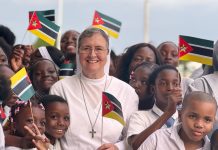

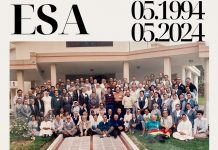
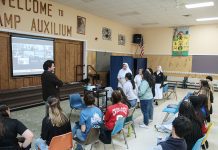
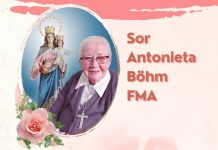



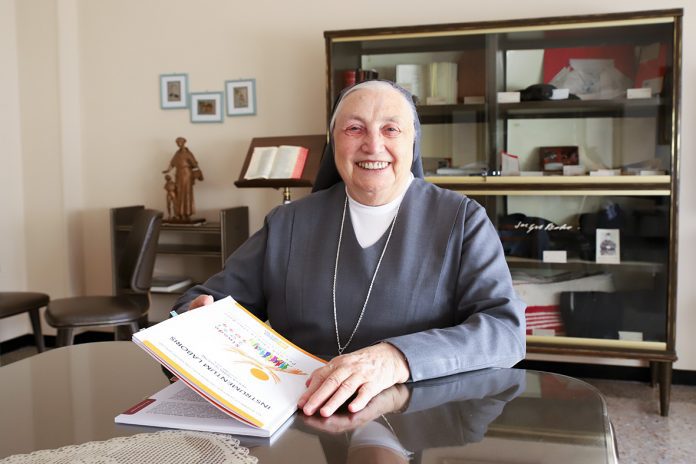










Oramos por Madre Yvone para el Espíritu Santo la ilumine y pueda realizar la misión que se le ha encomendado. Nos unimos desde nuestra Comunidad del Colegio Margarita Bosco-CBN en oración